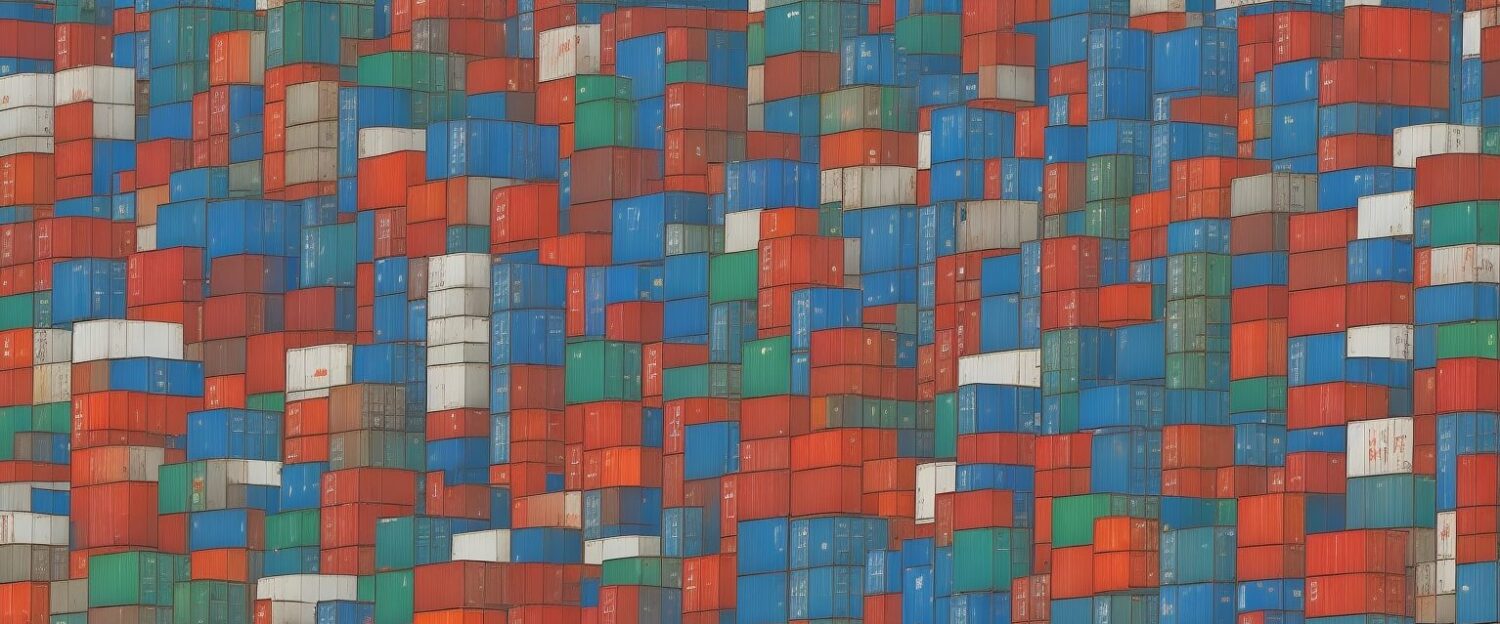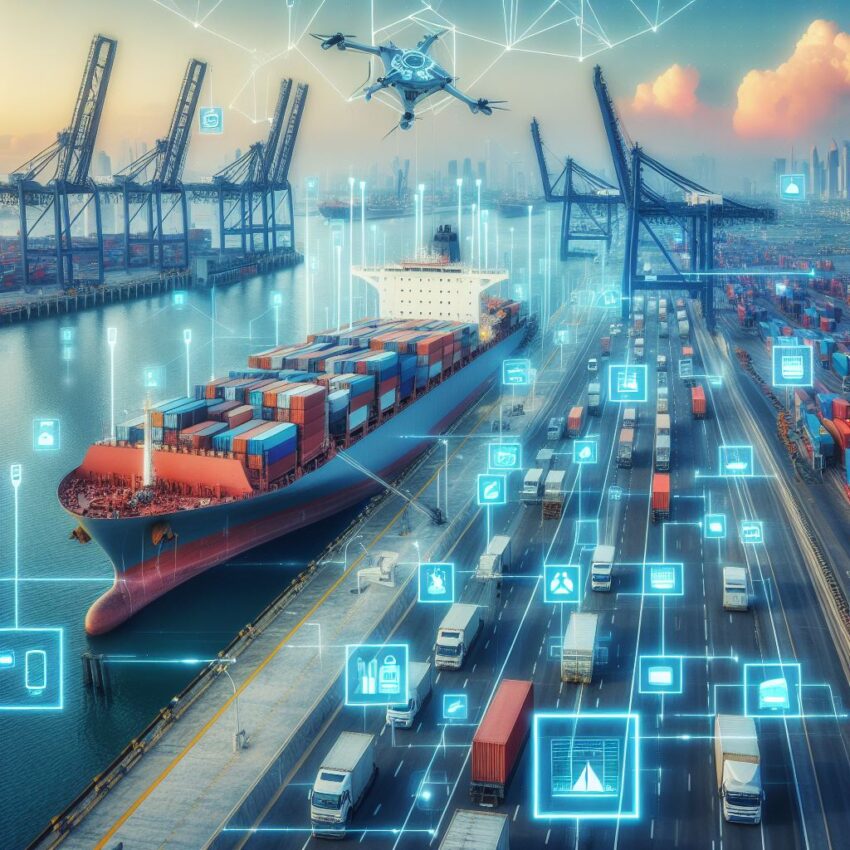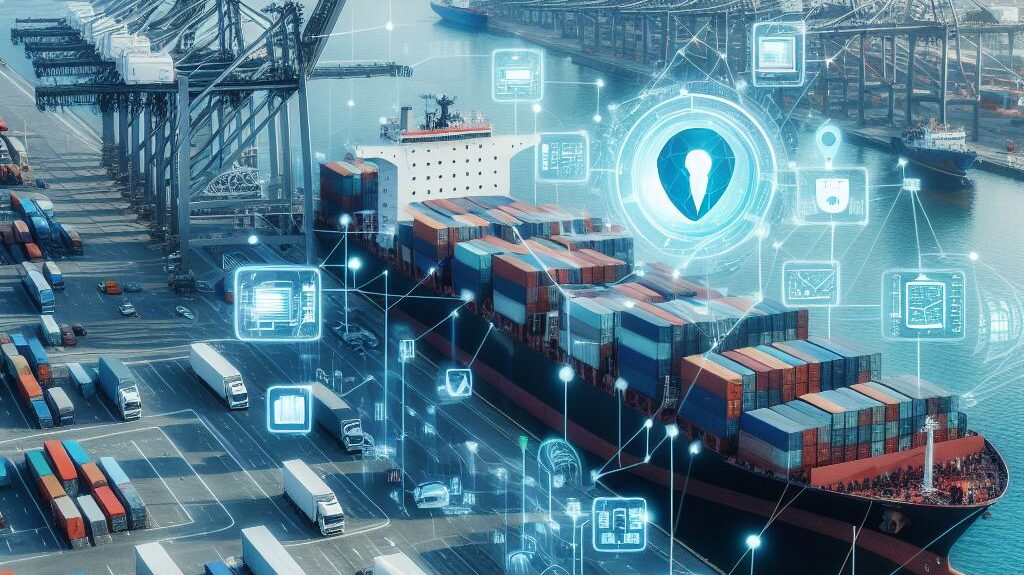Shipping containers revolutionized trade by standardizing cargo transport, making the loading and unloading processes exponentially more efficient. However, the digital revolution has brought us to the brink of another seismic shift in logistics through advanced container tracking technology. No longer are we dependent on the sporadic updates from ports of call.
At the forefront of this revolution is the integration of the Internet of Things (IoT) within the logistics industry. IoT refers to the interconnectivity of devices via the internet, allowing them to send and receive data. In the context of container shipping, this translates to the installation of sensors and smart devices that can provide constant updates on a container’s location, as well as vital stats such as temperature, humidity, and impacts that could damage the contents.
IoT in logistics means that each container becomes a node in a vast network, feeding information to operators and clients alike. This network has transformed the ways logistics companies approach route optimization, maintenance, and overall fleet management. For instance, detecting a delay or a problem with one container can trigger a cascade of adjustments across the entire fleet to mitigate any negative impacts on delivery times and costs.
Smart Container Solutions
Smart container solutions are the next step in this technological evolution. Smart containers are capable of adjusting their internal conditions to ensure the integrity of their cargo. For example, a smart container transporting perishable goods can actively manage its temperature to prolong the freshness of its contents. Similarly, containers carrying sensitive electronics can maintain optimal humidity levels to prevent damage.
The wealth of data collected from these smart containers also feeds into big data analytics, which can unearth insights that lead to more efficient packing methods, loading procedures, and overall supply chain optimizations. As machine learning algorithms consume more of this data, they become better at predicting potential issues, enabling pre-emptive measures that save both time and resources.
Enhanced Security Measures
Enhanced security measures are a critical aspect of the advancements in shipping container technology. High-value shipments have always been the target of theft and piracy, but modern technology arms shipping companies with better defenses. Sensors can detect unauthorized access to containers, and companies can remotely lock or unlock these high-tech containers.
IoT-enabled devices can also activate tracking even if the container itself is off the grid, using systems like GPS, RFID (radio frequency identification), or even satellite communications to keep tabs on the cargo. This level of tracking deters theft, as it raises the likelihood that the perpetrators will be caught, and ensures that even when thefts occur, the recovery rate of stolen goods is much higher.
Smart Tracking Systems
The implementation of smart tracking systems has been a game-changer in the logistics industry. Container tracking technology enables predictive analytics that help foresee and navigate potential delays. These systems can advise on everything from the ideal speed for a ship to maintain schedule while conserving fuel to the best routes to avoid weather-related delays or traffic congestion at certain ports.
With the help of smart tracking, shipping companies are able to provide their clients with more accurate ETAs for their cargo, better cargo safety, and overall improved customer satisfaction. Moreover, data collected from these tracking systems can help optimize shipping routes and operations, slashing costs and reducing the environmental footprint of shipping.
Future of Container Shipping
Looking towards the future of container shipping, the potential for further advancements in this field appears limitless. Concepts like autonomous ships are already on the horizon, suggesting a time when the shipment of goods will require minimal human supervision. Coupled with advancements in container technology, we are entering an era where the efficiency and reliability of cargo transport will reach levels that were unimaginable just a few decades ago.
Artificial intelligence will likely play a significant role in this future, monitoring and managing the vast amount of data generated by IoT-equipped containers and using it to automate complex decision-making processes associated with global logistics. There’s also room for innovation in the containers themselves, with the possibility of developing materials that are stronger, lighter, and more adaptable to a wider range of cargo types.
Amidst all this talk of technological advancement, there’s a growing emphasis on the sustainability of shipping practices. Future developments in container technology will not only focus on efficiency and security but also on environmental impact. From solar-powered refrigeration units to biodegradable construction materials, eco-friendly innovations are being explored to reduce the carbon footprint of container shipping.
A Connected, Secured, and Sustainable Future
As this technology continues to grow, the logistics industry would do well to embrace these innovations eagerly. The combination of container tracking technology, IoT in logistics, smart container solutions, and enhanced security measures are not just an opportunity but a necessity to tackle the ever-growing demands of global trade. Beyond the immediate advantages of improved efficiency and security lies the promise of a better-connected and more sustainable world of commerce.
The logistics and supply chain sectors can no longer afford to ignore the implications of these advancements. Embracing this new era in shipping container technology is key to staying competitive and achieving a seamless, transparent and secure transport of goods across the globe. The logistics is changing, and with the right investments in IoT, smart solutions, and ecological foresight, shipping can settle into a new golden age of prosperity and reliability.



